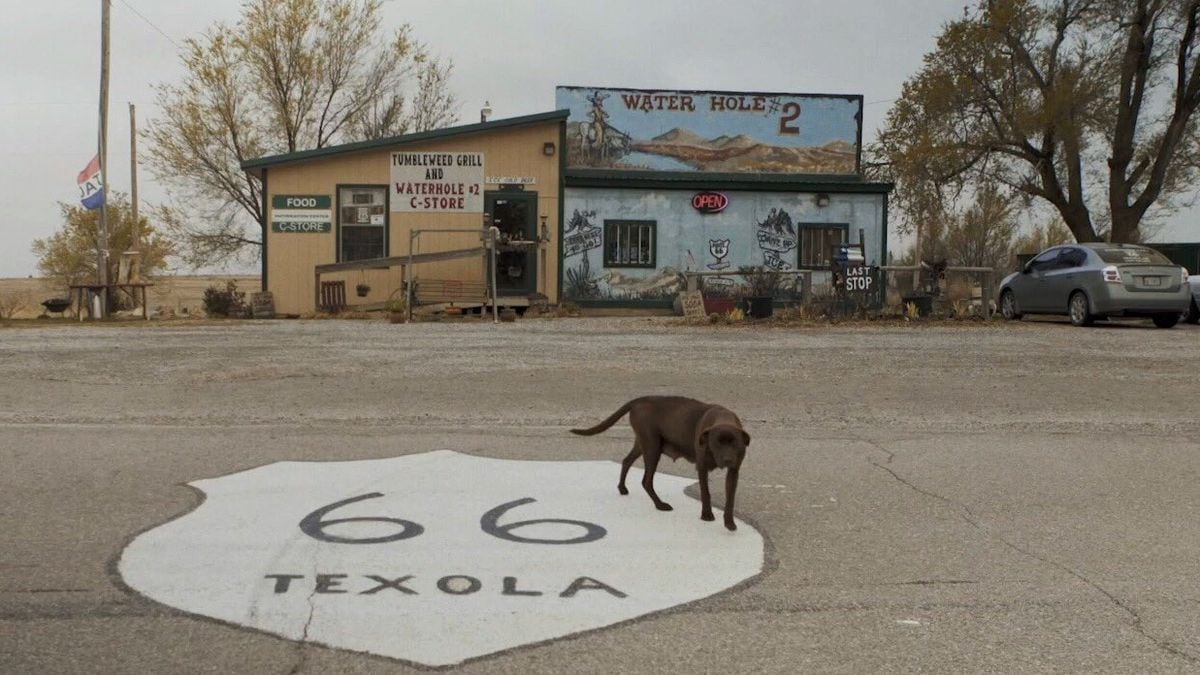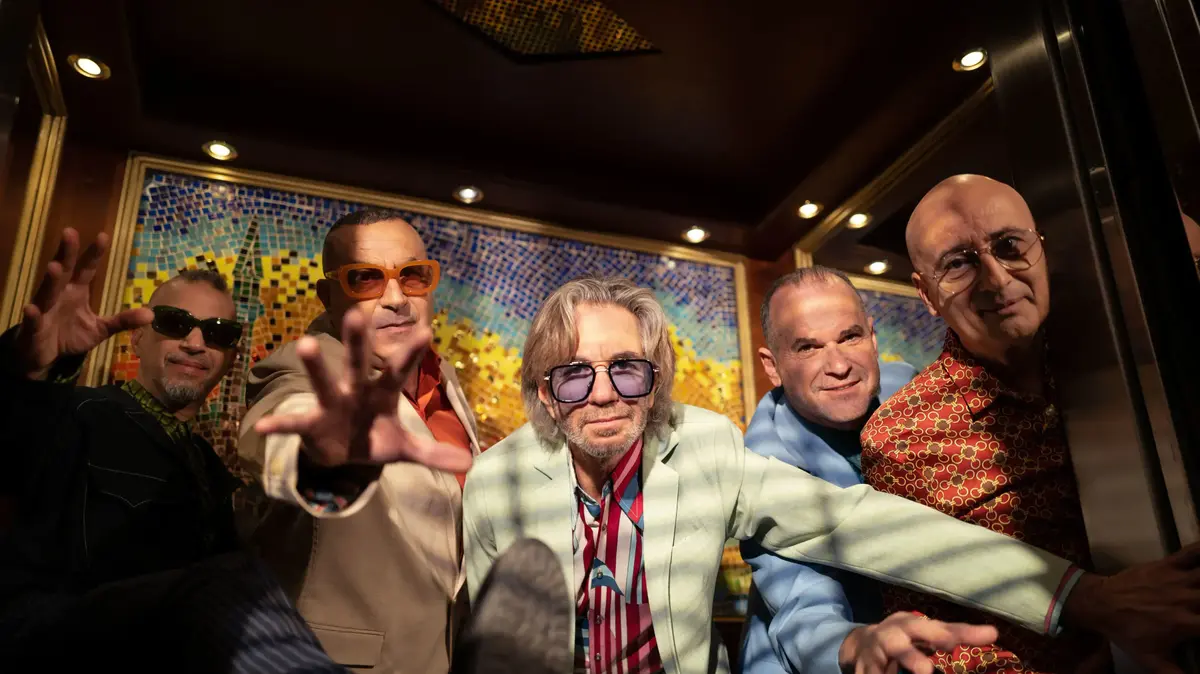There are bar discussions that go nowhere, but where we can still make some sense of things.
One of them could be the one that sometimes assails me among friends or, like the other day, when I was listening to Sofa Sonoro, the fantastic program directed by Alfonso Cardenal on Cadena Ser. The program was dedicated to rock music in the decade of the 70 and I confirmed again something that I have thought for a long time: the 70s were the best decade of popular music.
Before Troy burns, which it will do anyway, it is convenient to give arguments.
Official history has always considered the glorious 60s as the best decade of popular music, the one in which rock was consolidated as a countercultural movement and offered the splendor of pop rock and youth culture exemplified by artists so definitive that they were successful. like Bob Dylan, The Beatles or The Rolling Stones.
It was also the decade of soul with Stax or Motown as major labels or the birth of the great festivals with the legendary example of Woodstock.
There were many more political ingredients and social struggles that fueled the decade.
It is not the only transcendental period: the 50s gave birth to rock'n'roll and lit an incredible fuse starting with Elvis Presley.
Purists love this decade because it was the start of so many things and still had a fascinating innocence about it.
Others would bet on the eighties, with postpunk and the birth of indie, so decisive for many and that has created its own musical myths.
And, generationally, there are those who defend the nineties for emotional reasons: they lived in their flesh the jolts of grunge, brit pop or the most brilliant indie.
At this point, when current news does not stop reminding us that the 20th century is dying out as its cultural symbols die, looking back is a way of putting the past in order.
The 1970s holds many keys to understanding all the value of popular music, but, especially, it is a wonderful emotional territory.
The affirmation that this decade is the best for popular music responds more to a personal question than to a demonstrable sentence.
However, there are important elements that would support this thesis.
I have always seen the 1970s as the time when rock, as an artistic and cultural movement, became self-aware with all its strengths and weaknesses.
With the end of the Beatles and the summer of love, the counterculture seemed to dissolve.
The change of the decade showed that the story of the 60s had ended up becoming merchandise, another instrument of consumption within commercial culture.
Despite everything, the 70s was a period that, within this reality, allowed the fervor of Seattle with The Stooges and MC5 and punk to emerge, both in the United Kingdom and in the United States. If only for that reason - the rage and the nihilism with which the foundations of industry and popular culture were shaken - this decade would be worth almost more than any other.
At least there was a lot more knowledge of failure and a lot more desire to break everything.
Thus, the 70s are also the years of The Clash, Sex Pistols and Ramones.
Therefore, only in these five named bands is there a whole philosophical treatise on rock.
From left to right, Nicky Headon (drums), Mick Jones (guitar), Paul Simonon (bass) and bandleader Joe Strummer (guitar and vocals).
The Clash in New York in 1978. Photo: Getty
Outside of this fury, in parallel, there was a new wave in pop rock and that time has established as an essential movement: the street rhythms coming out of CBGB with artists like Patti Smith, Blondie, Television, Talking Heads, Johnny Thunders, The Dictators or Mink Deville.
Add to that the incredible British response to
new wave
.
The fuse of names is very long, but I will only point out a few that support an entire giant building: Elvis Costello, Nick Lowe, The Police, Echo and the Bunnymen and Joy Division.
In the United Kingdom, moreover, there would be what was called pub rock.
Nobody better than Dr. Feelgood to represent him, but also Brinsley Schwarz, Ian Dury or Graham Parker.
In black music, soul expanded to new limits of funk thanks to the best and beast version of James Brown, but also adding new and vibrant names as essential as Funkadelic and Parlamient.
Even soul took on immense awareness as it expanded its sonic possibilities.
Thus, Motown, despite all its success in the 60s, was never more transcendental than this decade that crowned an unbeatable Stevie Wonder and gave us the Marvin Gaye of
What's Going On
and what would come after.
And only this decade is also marked as unrepeatable because it is the one of the birth of hip hop in the Bronx of New York, an entire Afro-American countercultural earthquake that ended up having its true splendor in the eighties.
Salsa also emerged from New York, which marked a before and after for Latin music throughout the world.
The same decade will bring progressive rock and hard rock, two new musical genres derived from the great trunk of rock.
That is to say, it is the decade of Led Zeppelin, Black Sabbath or AC/DC.
And, if we are to mention mammoth stadium bands, we must add Queen or The Eagles.
It is also the decade of disco music, so important for the development of discos that continue to this day.
But, without a doubt, just as the seventies are the decade of punk and hip hop, it is the decade of electronic music.
This musical movement with great social roots will change the entire sound scene from the birth of popular electronic music, exemplified by Kraftwerk, another essential group in the history of music and coming out of this decade.
And, just across this shore,
outlaw
: Willie Nelson, Johnny Cash, Kris Kristofferson, Waylon Jennings… and they were also out there in another rhythm of their own but glorifying country-folk Gram Parsons, Linda Ronstadt, Emmylou Harris and Townes Van Zandt!
Bob Marley, in an interview smoking marijuana after a concert at The Fox Theater. Tom Hill (WireImage)
If all that has been said is not enough, this decade is tremendous because it was the natural period of two giants: David Bowie and Lou Reed.
But there is more.
Much more.
Like Bob Marley, expanding the radar towards world music with reggae.
And yet, personally, I prefer this decade for the following names.
The '70s spawned Neil Young, Tom Waits, Bruce Springsteen, Tom Petty, Patti Smith, and Jackson Browne.
Or he developed a fascinating Van Morrison.
And it also allowed the departure of great musical dramas like Elton John or Billy Joel.
And if I'm going to defend this decade from all the others, I'll do it even more personally.
As much as his was that of the 60s, this decade is the one of my favorite Rolling Stones:
Sticky Fingers
and
Exile on Main St.
It is the same with Bob Dylan, to whom the 60s belonged. Several of my favorite Dylans are born and die these years: the one with
Basement Tapes
(the album was released in 1975), the one with the
Rolling Thunder Revue
and the intimate one who reinvents himself with
Blood on the Tracks, Desire
and
Street Legal.
Eye, and the religious of
Slow Train Coming.
I buy.
As I buy that above (hold on to the seat) is the decade of a unique, huge Elvis Presley.
I defend to death the Elvis of the 70s, rising in his enormous suffering and consuming himself in a perfect metaphor of rock and roll.
And it is the decade in which he dies.
And that makes it unique.
Subscribe to continue reading
read without limits
Keep reading
I'm already a subscriber











